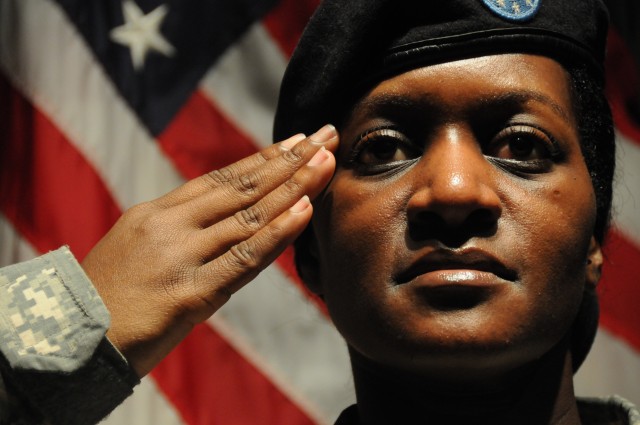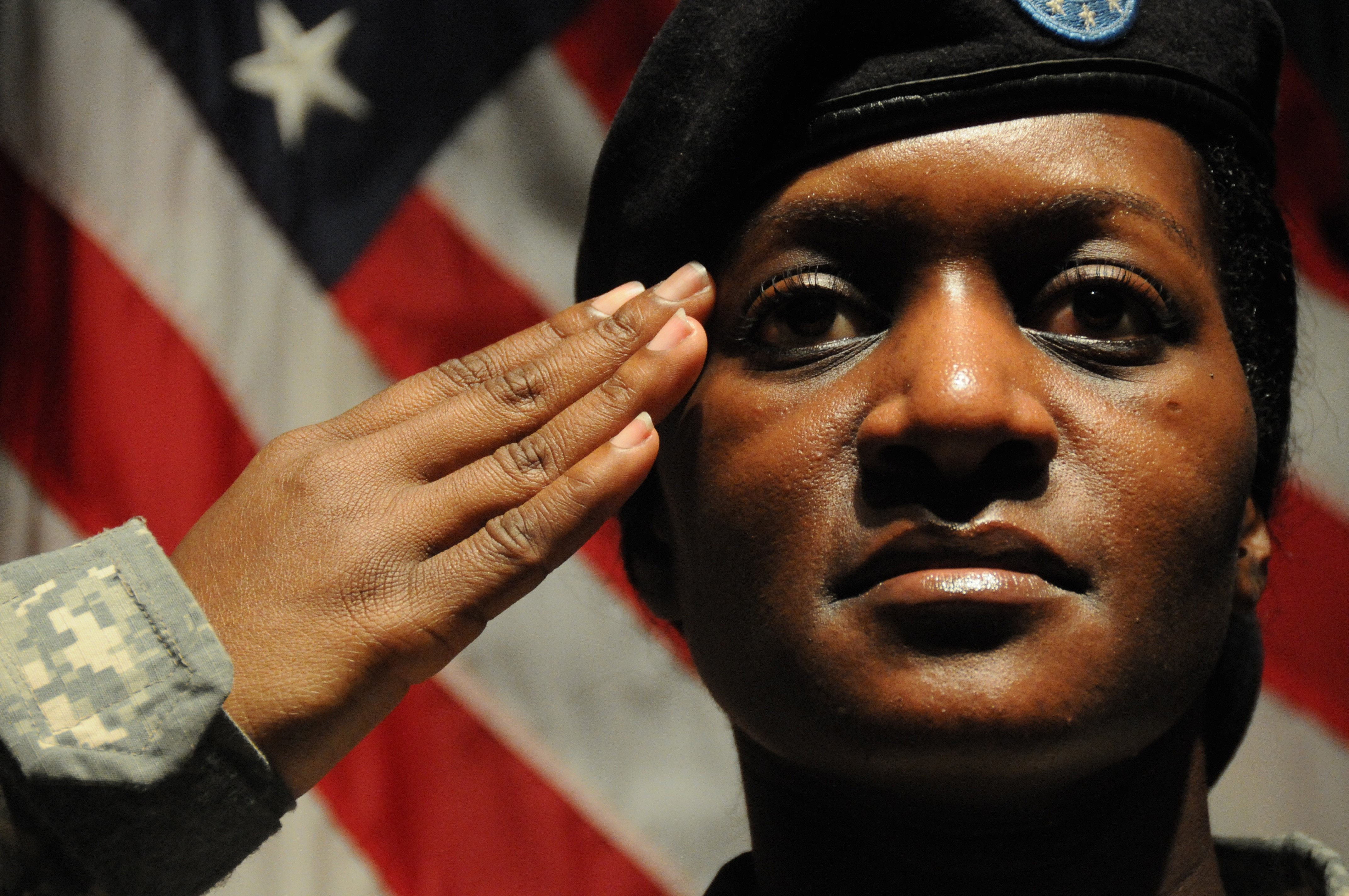
Fort Lee, Va. (Feb. 13, 2009) -- It's Saturday at the Virginia War Museum in Newport News, Va.A,A Eighty-three year-old Tuskegee Airman Harry Quinton, wearing the group's signature red blazer, is a mix of pride and humility as he recalls tidbits of his military past to visitors who are black, white, young and old. They are curious admirers and are eager to converse, listen to war stories and pose for pictures with the former mechanic and three of his fellow world-famous Airmen.
"Not in my wildest dreams did I ever think that 60 years later people would be congratulating me and thanking me for my service," he said, becoming a bit misty.
Quinton and the Airmen helped to crush the racial stereotype of inferiority after performing admirably as pilots and support personnel in the Army Air Corps during World War II. Today, they are highly recognized and respected for their achievements.
The Airmen, however, are throwbacks to a darker time, weary travelers along an arduous road of racial equality that was oftentimes impeded with indignity and intolerance.A,A
They and millions of other African Americans played a part in the passage,A,A having served, suffered and died with the lofty hope and blind faith that the United States would someday faithfully practice its creed.
"Throughout history, African Americans have participated in every major war this country has fought and have been heroes in all of them," said Ret. Army Col. Porcher L. Taylor, a Petersburg resident, history enthusiast and veteran of three wars.A,A "They lost their lives just like anybody else, but they often came back to the same conditions that they left."
Indeed, black Americans have answered the call for military service with the hope their loyalty would be rewarded in the form of better treatment as citizens. Those hopes were often squashed. During WWII, for example, thousands of African-American SoldiersA,A leapt at the opportunity to fight the Germans, said Taylor.A,A
For all their enthusiasm, though, they were largely relegated to jobs as laborers, subjected to substandard equipment and training and lived in conditions that were less than ideal. Excerpts from a 1943 survey published in a 1965 Army study titled "The Employment of Negro Troops," pointed out that African-American Soldiers and units suffered from crippling low morale and esprit de corps, and they longed for treatment equal to their white counterparts.
Respondents to the survey asked questions like: "If white and colored Soldiers are fighting and dying for the same thing, why can't they train together'" and "Why can't Negroes have fine things like the white boys in the Army'"
Gen. Benjamin O. Davis Jr. also asked that question.A,A The first black man to graduate from the U.S. Military Academy in the 20th century, Davis enrolled in the school thinking the acceptance carpet would be rolled out.A,A Instead, he spent four years at the school in brutal isolation at the hands of his white classmates who plotted to break his spirit.
"He was given the silent treatment," said the 84-year-old Taylor. "No one spoke to him but the instructors.A,A He was put into a room by himself, left alone, ate alone and had no friends. To endure that took a lot of guts ... and dedication."
Davis abhorred his treatment but eventually grew to acknowledge his effort as a sacrificial one. Taylor, like Davis, also had a few bouts with racism. In the early 1950s, while stationed at Fort Jackson, S.C., Taylor observed that a white Soldier had failed to salute him. He didn't let his anger get the best of him but moved quickly and decisively to right the wrong.
"I chewed him out," he said.A,A "I wanted to let him know that I was an officer of the United States Army and I would be treated as such."
Taylor's father was a newspaper publisher and community activist in the Jim Crow South, and he recognized early in his life what the struggle for equal treatment was all about. He said it was about lawfully challenging the system where it counted, fighting within it and recognizing that everyone had a role.
His decisions, like that of Davis' courageous stand at West Point, were rooted in patriotism, civility and the knowledge that they were helping to clear the way for future generations.
"If you have a goal to sit at that table, and you really mean that you want a place at that table, you're going to do it, no matter the adversity," said Taylor, the first black promoted to the rank of colonel at Fort Jackson, S.C.
The Tuskegee Airmen understood their role in the struggle and wanted a place at the table.A,A Quinton said the outfit was set up to fail, but that expectation propelled them to honorable heights of achievement.
"We were doing something that no other group of blacks was allowed to do," he said.A,A "We knew that if we had failed, they (whites) would have said, 'We told you so.' Failure was not an option.
"We had to succeed."
As history would have it, many blacks lugged the hopes and aspirations of an entire race and were dead-set on achievement.A,A There were many whites who supported them. President Harry Truman set the stage for racial progress when he signed, in 1948, Executive Order 9981, a ground breaking act that integrated the Armed Forces.
All of the services moved to comply with the order, some more ambitiously than others.A,A By the time the Korean Conflict had started, many Army units were fully integrated and fighting as one.
Today, race relations in the military are in a place where many thought it could never be.A,A The road hasn't been perfect, but people of all ethnic groups find military service an ideal opportunity to realize their full potential and make unfettered contributions to the country.
For that, they can thank those like Quinton, Taylor, Davis and millions of others who didn't always enjoy those privileges but who toiled, suffered and sacrificed themselves to make them possible for future generations. A,A A,A A,A A,A

Social Sharing